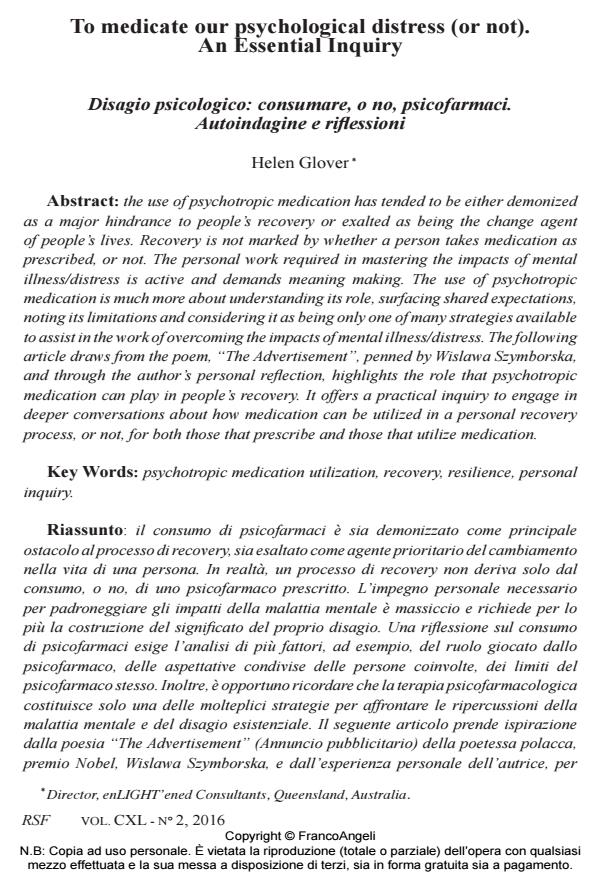To medicate our psychological distress (or not). An Essential Inquiry
Journal title RIVISTA SPERIMENTALE DI FRENIATRIA
Author/s
Publishing Year 2016 Issue 2016/2
Language English Pages 14 P. 65-78 File size 200 KB
DOI 10.3280/RSF2016-002005
DOI is like a bar code for intellectual property: to have more infomation
click here
Below, you can see the article first page
If you want to buy this article in PDF format, you can do it, following the instructions to buy download credits

FrancoAngeli is member of Publishers International Linking Association, Inc (PILA), a not-for-profit association which run the CrossRef service enabling links to and from online scholarly content.
The use of psychotropic medication has tended to be either demonized as a major hindrance to people’s recovery or exalted as being the change agent of people’s lives. Recovery is not marked by whether a person takes medication as prescribed, or not. The personal work required in mastering the impacts of mental illness/distress is active and demands meaning making. The use of psychotropic medication is much more about understanding its role, surfacing shared expectations, noting its limitations and considering it as being only one of many strategies available to assist in the work of overcoming the impacts of mental illness/distress. The following article draws from the poem, "The Advertisement", penned by Wislawa Szymborska, and through the author’s personal reflection, highlights the role that psychotropic medication can play in people’s recovery. It offers a practical inquiry to engage in deeper conversations about how medication can be utilized in a personal recovery process, or not, for both those that prescribe and those that utilize medication.
Keywords: Psychotropic medication utilization, recovery, resilience, personal inquiry.
, To medicate our psychological distress (or not). An Essential Inquiry in "RIVISTA SPERIMENTALE DI FRENIATRIA" 2/2016, pp 65-78, DOI: 10.3280/RSF2016-002005